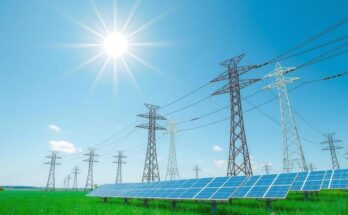Ecuador’s presidential election is headed for a runoff between President Daniel Noboa and Luisa González of the RC party, both receiving close percentages of the vote amidst rising violence and an ongoing energy crisis. The Indigenous vote, crucial in earlier elections, may play a significant role as left-wing factions increase cooperation. Tensions over resource extraction policies remain a central issue, influencing future political alliances.
Ecuador’s presidential election will proceed to a runoff as President Daniel Noboa and Luisa González of the leftist Revolución Ciudadana (RC) party garnered nearly equal shares of the vote, with Noboa at 44.6% and González trailing closely at 44.02%. This outcome occurs amidst rising violence and criminal activities that have plagued the nation, attributed to a surge in narcotrafficking under prior administrations.
The election was highlighted by public unrest following the assassination of candidate Fernando Villavicencio, which triggered an early election necessitated by former President Guillermo Lasso’s dissolution of Congress amidst impeachment attempts. Noboa’s administration has positioned itself against organized crime, declaring an “internal armed conflict” against gangs, albeit his militarized approach has sparked criticism for human rights violations.
The heightened violence is further complicated by an energy crisis stemming from severe drought, which has led to rolling blackouts and highlighted deficiencies in Ecuador’s energy investment. Additionally, the capture of former Vice President Jorge Glas, during a controversial raid, raised concerns regarding Noboa’s commitment to international law and order.
The election results were closer than anticipated, suggesting that the upcoming second round will be competitive. Notably, the historically divided left-wing may unify around González’s candidacy, potentially reshaping the political landscape. Indigenous voters, pivotal in earlier elections, may play a crucial role given their past support for leftist policies under Rafael Correa.
Past tensions arose between Correa and Indigenous organizations, particularly over resource extraction practices that had adverse social impacts. In recent elections, the Indigenous vote had been essential in preventing RC candidates from achieving success, as divisions widened post-2017.
To bridge this divide, RC sought collaboration with various leftist factions, including Pachakutik, an Indigenous-oriented party. While no joint presidential bid materialized, they established mutual commitments to refrain from attacking each other during the election, showcasing a potential shift towards cooperative efforts in future elections.
Despite their pact, divergent views on extractivism may complicate cooperation. González aims to transition to clean energy while acknowledging the current importance of oil and gas resources. Conversely, Pachakutik under Leonidas Iza advocates for an economy that prioritizes sustainable agricultural practices over extractive industries.
Ecuador’s plurinational identity, established in 2008, faces challenges in its application, primarily from governments prioritizing resource extraction. Iza’s campaign underscored this ethos, symbolizing solidarity with marginalized communities. However, the broader political discourse has largely sidelined plurinationalism, raising questions about its future in Ecuadorian politics.
The Indigenous movement’s involvement will be critical in determining the subsequent presidency. It remains to be seen whether RC will embrace a serious commitment to plurinationalism and effectively collaborate with Pachakutik for the betterment of Ecuador.
The upcoming runoff in Ecuador’s presidential election highlights critical divisions and potential alliances among leftist parties. Indigenous voters’ engagement will be pivotal to influence the final outcome, especially considering past tensions surrounding resource policies. As leaders navigate these complex dynamics, the emphasis on plurinationalism may shape Ecuador’s political future as it confronts profound social and economic challenges.
Original Source: theconversation.com




